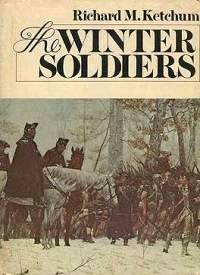This account of our revolution during its darkest and most forlorn hours is riveting and well researched. Ketchum brings to life the battles of Trenton and Princeton - which arguably were the most timely and important victories of the war. What fascinates, and underscores the pedestal we have built under Washington, is how much he shouldered the burdens of the cause alone -- and how he made critical and bold decisions that kept the flame of independence from burning out in the hearts of his countrymen.
Washington was near-peerless in this campaign, from his battlefield leadership at Princeton, where his aide-de-camp shielded his eyes at what he thought was his chief's impending death, to the careful, almost desperate, planning for the daring river crossing of the ice-choked Delaware and the march to Trenton. It is easy to dismiss or take for granted the Father of our Country over two hundred years later, but he was a towering figure to his peers, countrymen, and enemies.
This book, and its author, give him his due as a soldier, patriot, and leader of men.
This book is a good read, it's historically accurate, and it is a valuable addition to the literature of both the Revolution and the Continental Army that won it. George Washington may not have heaved a silver dollar across the Potomac, but as Ketchum illustrates in "The Winter Soldiers", the General earned most of the other heroic tales and descriptions attached to his name: Father of our Country, the Indispensible Man, the glue who held the army together. Richard Ketchum has captured the desperation in his excellent narrative of the campaign, along with the anguish, heartbreak, and jubilation that usually accompany military operations and battles lost and won.

